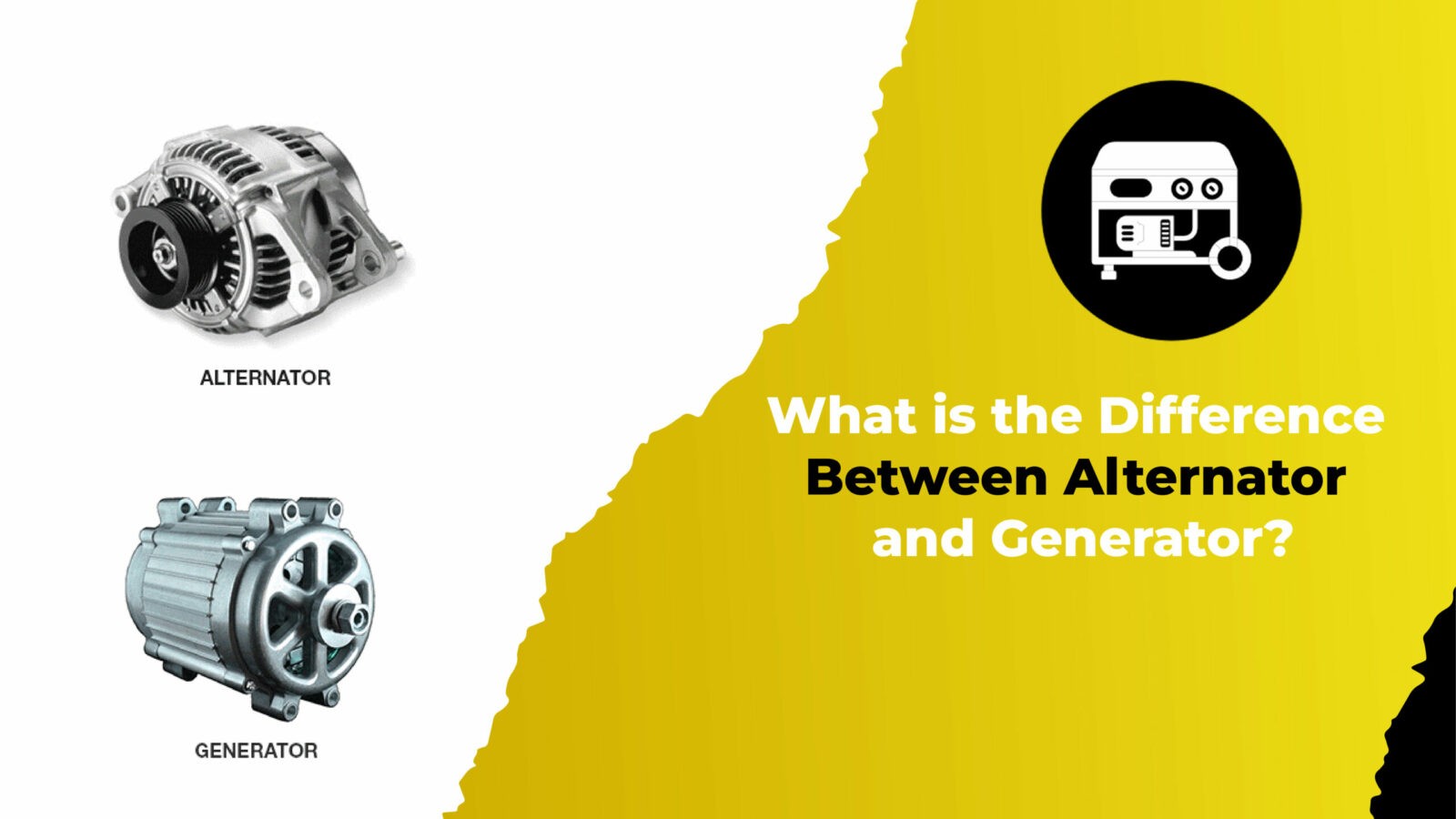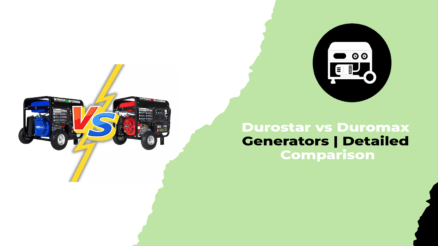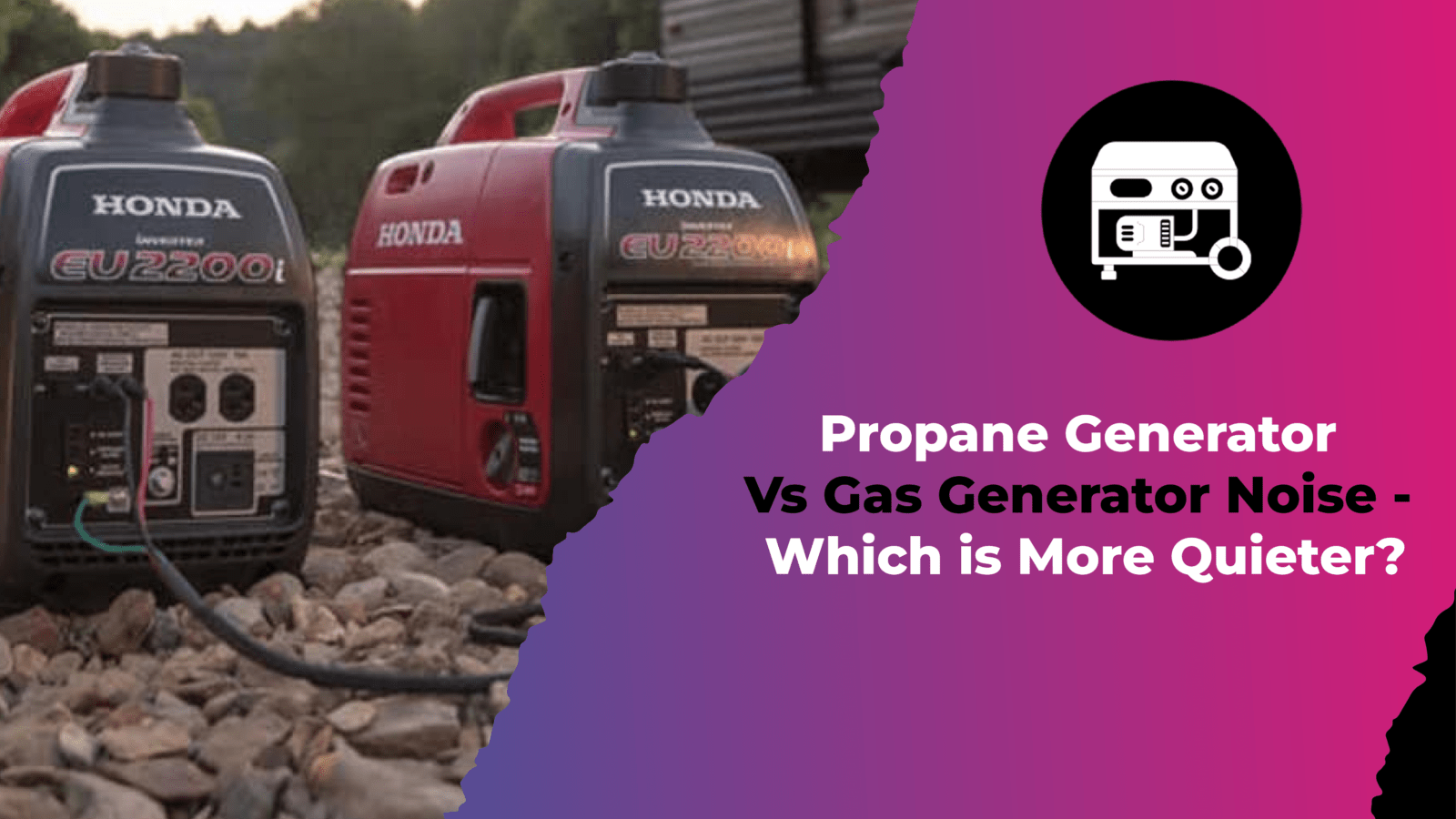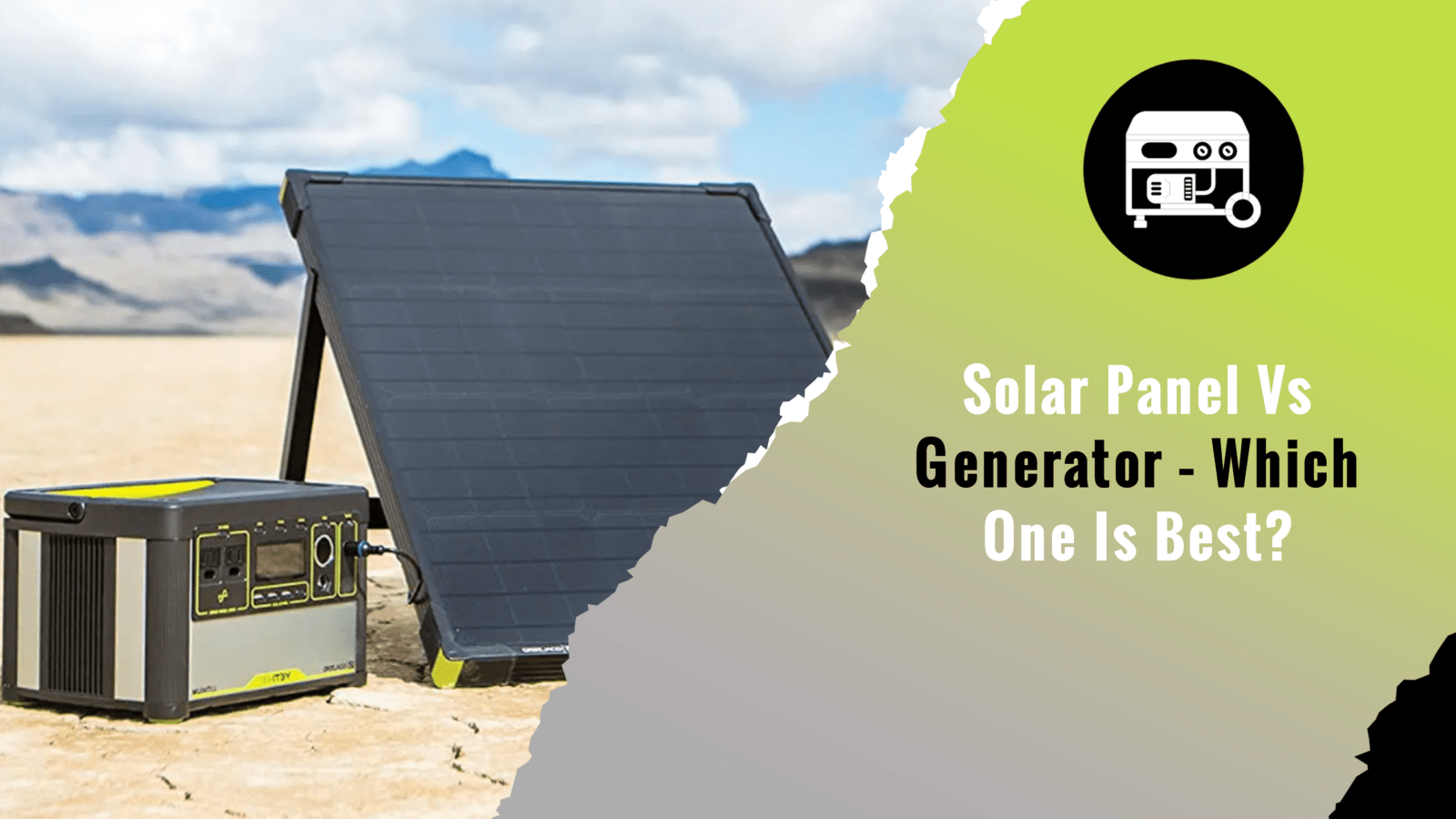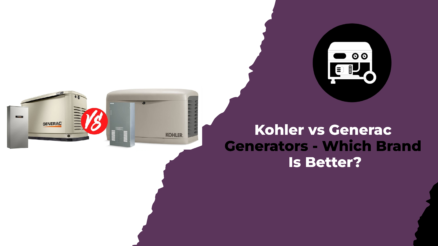Generator and Alternator are two types of electricity-generating equipment. An alternator may be thought of as a form of a generator. The alternator functions similarly to an automobile charging system, creating power. Generators, on the other hand, are utilized for large-scale electrical production. Mechanical energy is converted into electrical energy by both. However, the major distinction between alternator and generator is based on spins and motions.
If you want to uncover the major distinctions between alternators and generators, you must first understand what they are. In this Linquip post, we will quickly explain alternators and generators before comparing them to clarify their differences. Many individuals are aware that they are used to creating energy, but many are unaware of the distinctions between them.
This article explains the difference between an alternator and a generator. It illustrates how they differ from one another in terms of structure, output, efficiency, and so on. This essay will thus assist in gaining a thorough understanding of alternator and generator ideas. The distinction between alternator and generator is presented in a tabular format for easier comprehension. Let us have a look!
Check It: Inverter Vs Generator Which One Is Best?
Alternator Vs Generator
Although the output of the alternator and generator is similar (they both supply electrical energy and one of them also generates direct current), there are a few key technological distinctions that distinguish each of them for certain uses.
An alternator, unlike a generator, cannot recharge a depleted battery. This is significant because charging an exhausted battery using an alternator may result in safety concerns and perhaps the battery exploding.
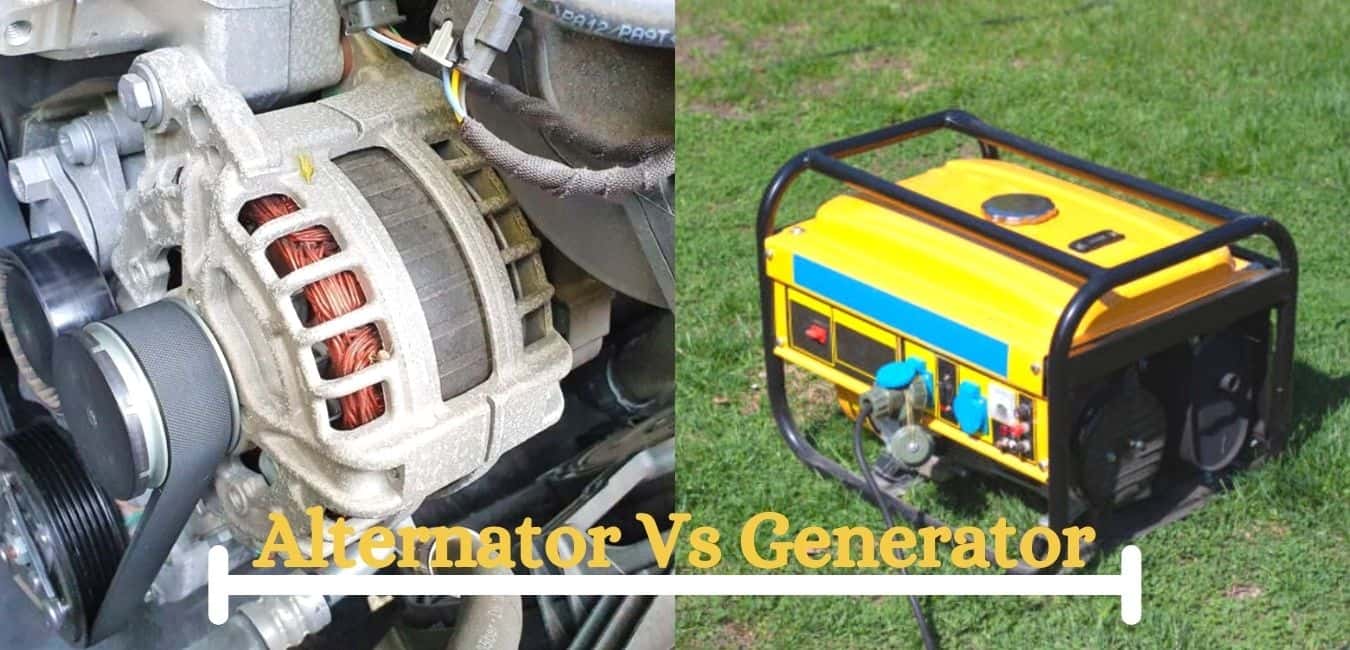
- An alternator, as we know, only produces alternating current (AC), but a generator produces both alternating current and direct current (DC). So, if you want DC, your sole option between alternator and generator is a generator. The current’s direction changes every half rotation of the rotor, resulting in alternating current. To obtain the generated AC, the circuit’s ends are directly connected to the load. When it comes to direct current or DC, these wire ends should be linked to the commutator, which transforms alternating current to direct current.
- The size of the alternator and generator also varies. Alternators are often significantly smaller in size than generators. Because of this size disparity, alternators may fit into smaller places, but generators often require huge rooms.
- The inner architecture of alternators and generators is another distinction. Alternators create a revolving magnetic field, whereas generators produce a fixed one.
- Another distinction between generators and alternators is that alternators are commonly used in commercial electric power plants and cars due to their mechanical simplicity. However, keep in mind that generators compensate for this shortfall by offering a variety of services. They may simply be used as a DC motor. How? By exerting force on the shaft. When the shaft is removed, the machine becomes a generator. Extra circuitry is required to convert an alternator from AC to DC, which complicates the design.
- Another distinction between generators and alternators is that alternators consume only the quantity of energy necessary, conserving energy. Generators consume 100% of the energy generated and hence preserve less energy.
- Another generator alternator distinction is that alternators do not require polarization. However, generators must be polarised after installation.
- Another distinction between alternators and generators is that generators have lesser output than alternators.
- Another contrast between generators and alternators is how electricity is generated. It should be mentioned that the power generation process of an alternator is way more effective than that of a generator. They both use the assumption of Faraday’s law of electromagnetic induction to accomplish their objectives. The magnetic field, however, is spun within a wrapping of wires in an alternator, whereas the magnetic field is spun inside a wrapping of wires in a generator, resulting in the production of a current. Because of their design, alternators operate at a faster rate! They can also deliver more power at lesser speeds.
- Another contrast between alternators and generator is that alternators produce small-scale electricity or function as a car fueling device, whilst generators generate sufficient electricity.
If you can’t decide between an alternator and a generator, you must understand that alternators are much more trustworthy than generators! One rationale is that generator brushes wear out faster because they use split rings, which allow the brushes to grind against the break. Solid rings are used in alternators, resulting in reduced wear and strain.
One final point to consider when comparing alternators and generators is their EMF. While the EMF of the alternator varies, the EMF of the generator’s output voltage is constant.
Read This: 30 Amp VS 50 Amp Generators
Difference Between Alternator and Generator
Both an alternator and a generator are mechanical devices that are involved in converting mechanical energy to electrical energy. Apart from that, they are completely distinct from one another.
The main difference between an alternator and a generator is that the magnetic field in an alternator spins around a stationary armature, whereas in a generator, the armature rotates inside a stationary magnetic field.
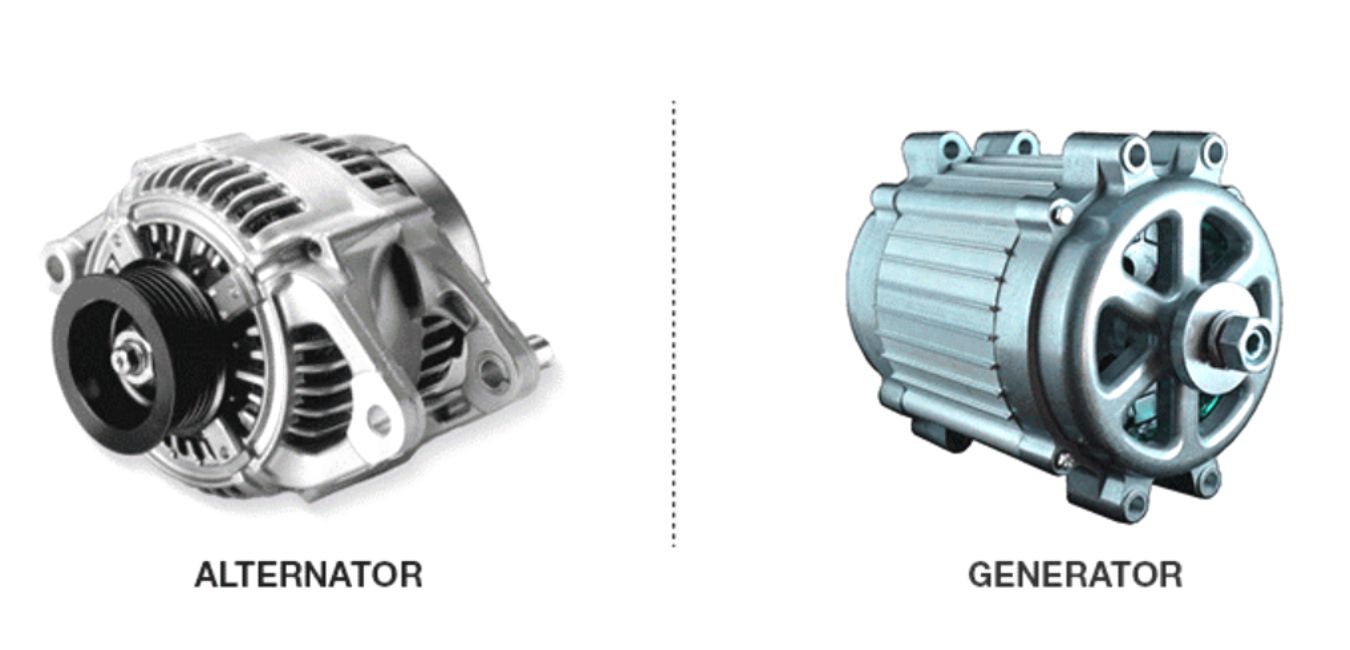
Comparison Table Between Alternator and Generator
| Alternator | Generator |
| It can only produce Alternating Current “AC.” | It may produce either alternating current (AC) or direct current (DC). |
| The magnetic field is represented by the revolving portion or rotor. | The armature is the revolving component of the rotor. |
| The armature is the stationary portion, often known as the stator. | The surrounding magnetic field is the stationary component or stator. |
| The stator is used to create the output current. | The rotor receives the produced output current. |
| The alternator output voltage is always greater than the Generator output voltage. | The power output of the Generator is indeed larger than that of the Alternator. |
| The brushes last longer since the armature remains static and there is no resistance. | Because of the friction between the brushes and the rotor, they do not survive very long. |
| It does not require polarisation after installation. | After installation, the generator must be polarised. |
| It has a wide RPM range (Rotations Per Minute). | It has a low RPM range. |
| Depending on the load, the produced voltage or energy fluctuates. | Regardless of the load, the output voltage remains constant. |
| It is unable to charge a totally discharged battery. | It may be used to recharge a totally discharged battery. |
| It saves energy and outperforms the Generator. | It consumes some energy and is inefficient compared to Alternator. |
| They are much smaller than generators. | They are bigger than Alternators. |
| Alternators are commonly used in automobiles to charge the battery. | The generator is commonly utilized as a backup power supply in all sectors, including residential, industrial, and construction sites. |
What is Generator?
A generator, like an alternator, may transform mechanical energy into electrical energy. However, when it comes to alternator versus generator, you should be aware that generators may produce both AC and DC. Generators can produce either direct current or alternating current.
A rotor within the generator revolves, accumulating electricity and producing a magnetic field, resulting in the generation of the required energy to spin the armature.
Read More: How Does a Generator Work
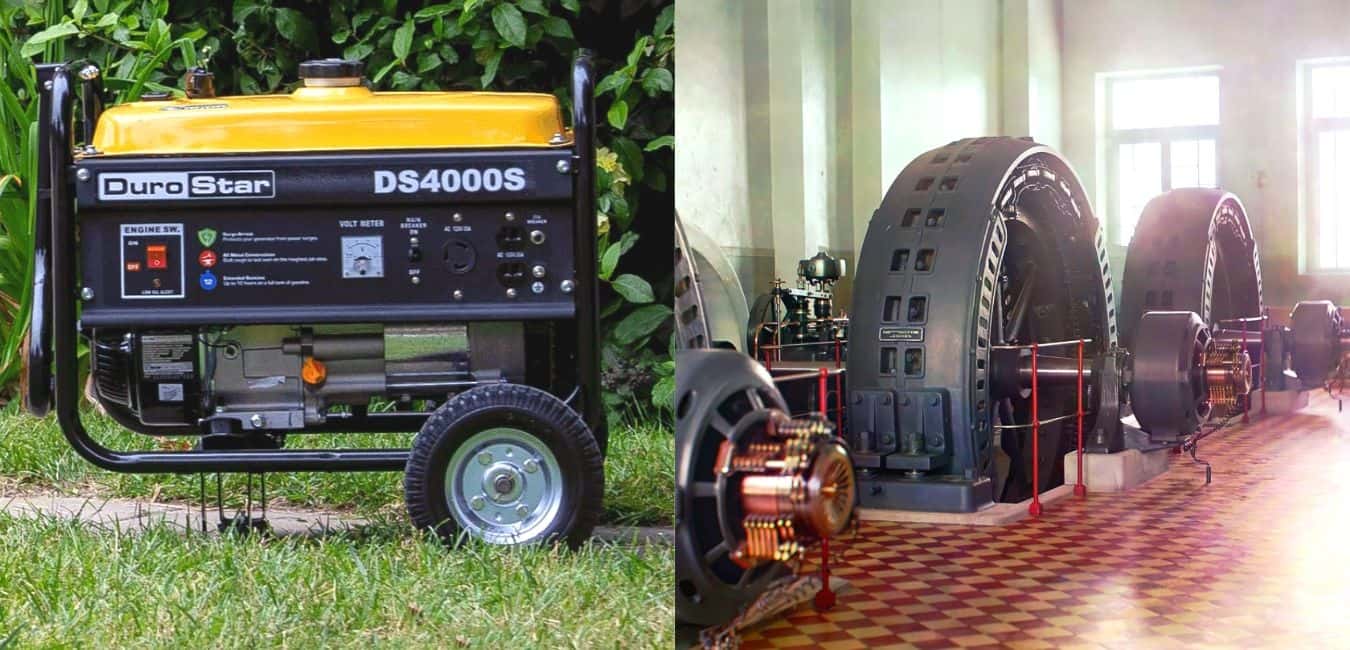
What is Alternator?
An alternator is a power generation system. It converts mechanical energy into electricity as an AC (also known as alternating current). An alternator’s magnet rotates, providing a current to transmit energy, and this is how such generators generate electricity.
Is an Alternator a generator?
No. An alternator is a machine that is involved in converting mechanical energy into alternating current (AC). A generator is a mechanical device that is involved in converting mechanical energy into electrical energy, either alternating current (AC) or direct current (DC). An alternator constantly produces alternating current.
What Does a Generator do in a car?
Cars, SUVs, and pickup trucks all have their own ‘generators’ beneath the hood called alternators. It is in charge of producing power to charge the battery while the engine is operating. They also keep the vehicle’s electrical components charged.
Are Alternators Ac or Dc?
An alternator, along with the charger, provides power to the vehicle’s electrical components. The output of an alternator is direct current (DC). Alternating current (AC) travels through a magnetic field and creates an electrical current when the alternator pulley is turned.
Check More: Solar Panel Vs Generator
Alternator Vs Generator – FAQs
To Sum Up
That was all there was to know about alternator versus generator. You can see why they aren’t utilized in place of each other now. They provide the same effects, but their application and internal structure differ.


